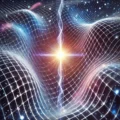The Interplay of Mass, Gravity, and Acceleration
An Early Schism
Early physics highlights a seemingly contradictory situation:
Newton’s Law of Universal Gravitation asserts that the gravitational force between two masses is proportional to the product of their masses and inversely proportional to the square of the distance between them. This clearly links mass with gravitational force.
Galileo’s Experiments, notably dropping objects from a height, demonstrated that all bodies fall with the same acceleration in a gravitational field, regardless of their mass. This implies gravitational acceleration is mass-independent.
These observations appear to conflict—how can gravity be dependent on mass in one context and independent in another?
Resolving the Apparent Contradiction
The resolution lies in separating the concepts of force and acceleration:
Gravitational Force increases with mass: a more massive object experiences a stronger gravitational pull.
Gravitational Acceleration is invariant with respect to the falling object’s mass: all objects accelerate identically in a given gravitational field.
This is reconciled by Newton’s second law: F = ma. A more massive object experiences a proportionally larger force, but also resists that force proportionally (higher inertia). These effects cancel, yielding identical acceleration. This equivalence of inertial and gravitational mass is empirical, but it lacks a deeper causal explanation in Newtonian physics.
Einstein, Energy, and Mass Equivalence
Einstein’s equivalence principle recasts gravity as indistinguishable from acceleration, not as a force tied to mass. His field equations connect the geometry of spacetime to the stress-energy tensor, which includes mass, energy, momentum, and pressure.
Mass is just one contributor to this tensor. In fact, energy density—not rest mass alone—is what couples to spacetime geometry. This leads to the interpretation that gravity could be fundamentally an expression of energy in various forms, not uniquely mass.
Yet modern discussions often collapse this nuance, reducing gravity to being “caused by mass,” ignoring that all energy—including that of a photon—gravitates in Einstein’s framework.
Reconsidering the Narrative
Conventional wisdom holds that:
Mass generates gravitational fields (Newton),
Mass and energy warp spacetime (Einstein),
Acceleration due to gravity is independent of an object’s mass (Galileo).
However, the explanation that a massive object resists its own increased gravitational pull due to increased inertia only applies to test bodies in a field. It does not explain why the field exists, or how the source object induces it.
Thus, it remains an open—and rarely questioned—assumption that gravity is necessarily tied to mass. It is entirely possible that gravity originates from a more fundamental mechanism, and that mass is merely correlated with, not causative of, gravitational effects.
